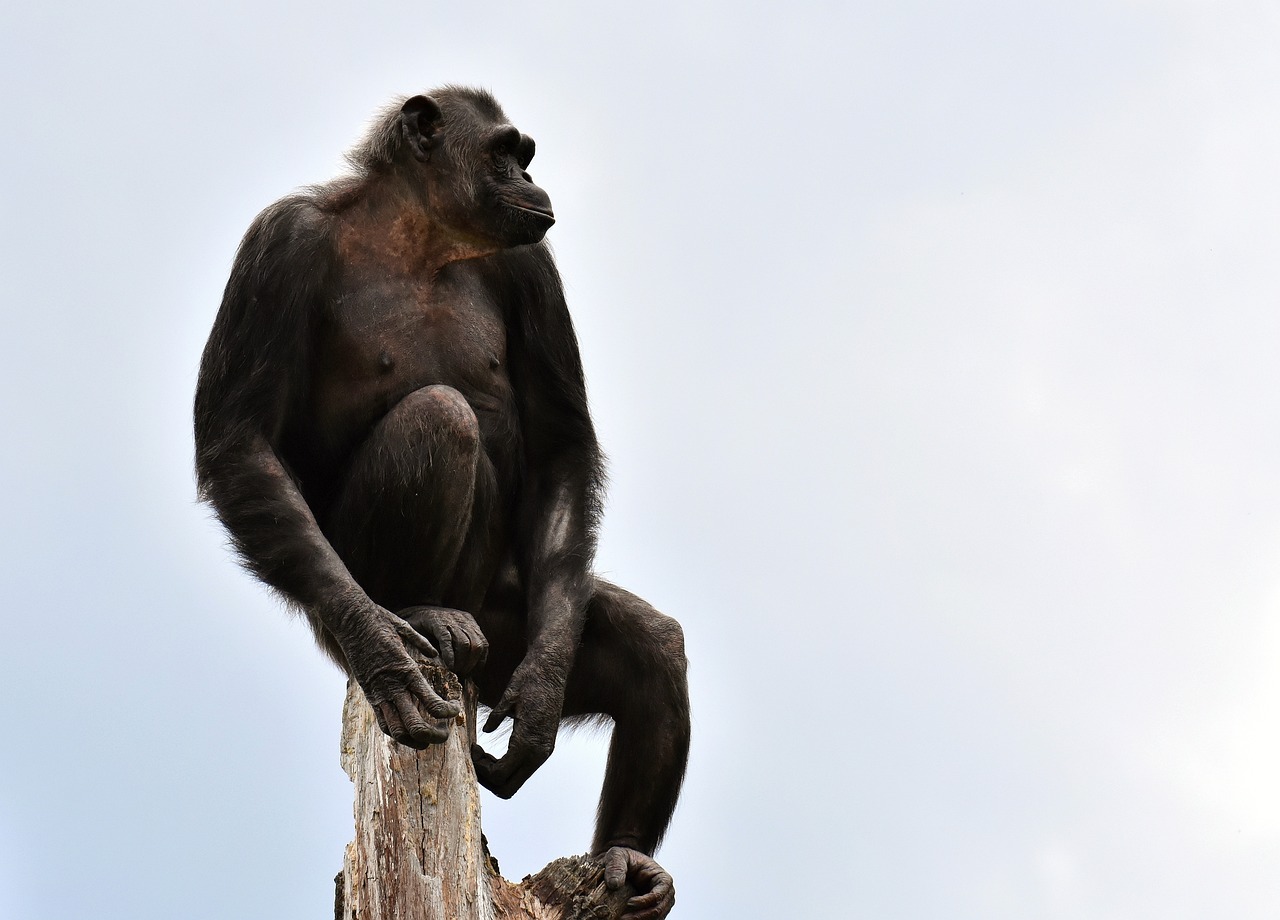News release
From:
Chimpanzees use high ground to gather information about rival groups
3-year behavioral study finds chimps use hills near territory borders to inform tactical decisions
Chimpanzees use high ground to gather information about rival groups and avoid risky confrontations, according to a study publishing November 2nd in the open access journal PLOS Biology by Sylvain Lemoine and colleagues at the German Primate Center and the CNRS in France.
Humans have long used high elevation terrain during war. Climbing to higher ground provides a tactical advantage — it is easier to defend and allows the group to gather information about the size and location of enemy groups. Non-human animals use hills to detect predators and call to mates, but whether they also use higher ground to gain information about rivals is unknown.
To investigate this possibility, researchers observed the movements and behavior of two neighboring groups of western chimpanzees (Pan troglodytes verus) in the Taï National Park in Côte d’Ivoire between 2013 and 2016. They found that chimpanzees were more than twice as likely to climb hills when they were travelling towards the border of a rival group’s territory than when they were travelling towards the center of their own territory. On hills near the border, they spent more time resting — an activity that would allow them to simultaneously listen out for the calls of other groups — than on noisy tasks such as feeding. After descending from a hill, the chimpanzees’ next move tended to be one that would reduce the risk of encountering enemies.
These findings support the hypothesis that chimpanzees climb hills to gather information about the presence of rival groups and avoid potentially costly conflicts. The study provides the first evidence that non-humans use landscape features tactically in conflict with neighbors. This suggests chimpanzees are using complex cognitive abilities, which may have been favored by natural selection due to the benefits of successfully defending a territory, the authors say.
Lemoine adds, “Chimpanzees are able to consider which information is known and which has to be acquired to adopt planned traveling movements, and they collectively act upon gathered information in a low-risk engagement manner.”



 International
International


